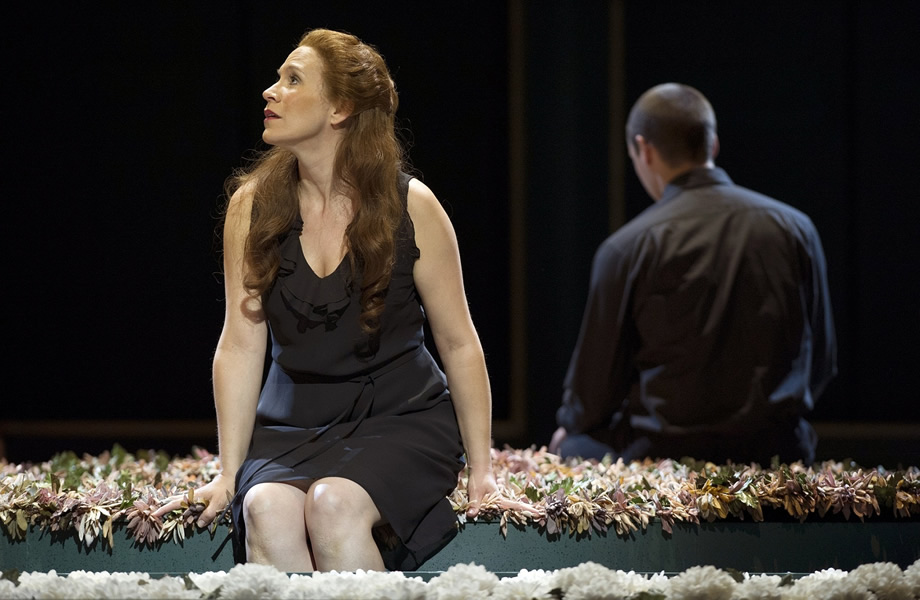Brilliance of the Baroque is the title of this evening’s concert at the Queen’s Hall, and it turns out to be a very accurate description of this delightful concert of music by Purcell and Handel. It is very much a concert chosen by tonight’s conductor, Richard Egarr, as he makes clear in his programme notes and his introductory talk. Egarr tells us that Purcell and Handel were the dominant composers in England around 1700. He has chosen this evening’s music both to show the brilliance of the composers, and to show off tonight’s soloist, the soprano Carolyn Sampson.
The concert begins with a selection of music from Purcell’s The Fairy Queen. The brilliance of the title is quickly evoked in the sound of the trumpets resonating round the wooden structures of the Queen’s Hall, backed up by the wind and the strings of the SCO, and as Egarr points out, these works were conceived to give great pleasure in the theatre. The Fairy Queen is very loosely based on Shakespeare’s A Midsummer Night’s Dream, but does not use Shakespeare’s text.
There are thirteen musical items and four wonderful arias: If love’s a sweet passion; O let me weep; See, even Night herself is here; and Hark! The echoing air. Sampson is one of our leading sopranos and many will remember her recent fine performance in Scottish Opera’s Pelléas et Mélisande. She is also a specialist in baroque music, and indeed sung The Fairy Queen at Glyndebourne recently. This experience shows in her singing of these arias tonight, and she uses all her operatic skills to illuminate the baroque music, and acts beautifully to give them meaning.
The second part of the concert is devoted to Handel’s music, beginning with his Concerto Grosso Op. 3 No. 1 in B-flat, which has some lovely slow music in the Largo. This is followed by three lovely arias from Handel’s Semele— Oh Jove! In pity teach me what to choose; Oh sleep, why dost thou leave me; and Myself I shall adore. Sampson brings the house down in the latter, with her superb coloratura singing and her very funny use of a mirror to adore herself.
The concert concludes with the well-known Music for the Royal Fireworks, which was, according to the very good programme notes by John Kitchen, commissioned to celebrate the end of war with the French. It is, of course, great fun music, and it makes one wonder whether the government has any plans to commission music to celebrate the “triumph” of Brexit!
The concert does indeed live up to its brilliant billing, and Egarr, who is an old friend of the SCO, in both his direction from the harpsichord and his energetic conducting, shows why is sought after all over the world. The SCO musicians look, as always, to be enjoying themselves, and give the big Queen’s Hall audience, in the words of Handel, “endless pleasure”.
